.jpg)
ChatGPT login: sign up, access, and use (Everything you need to know)
Contents
· Emergence of artificial intelligence
· Introduction to OpenAI- ChatGPT app
· ChatGPT login process- a step-by-step guide
· What is ChatGPT Plus?
· Who is the founder of ChatGPT?
· ChatGPT plus vs ChatGPT
· What is ChatGPT used for?
· Benefits of ChatGPT in everyday life
· Limitations and challenges
The emergence of artificial intelligence (AI) has indeed been a remarkable journey in the world of technology and computer science. AI, in essence, involves creating machines that can simulate human intelligence, enabling them to perform tasks that typically require human abilities like learning, reasoning, problem-solving, and understanding natural language. Among the numerous breakthroughs in AI, the advent of ChatGPT is certainly a significant milestone.
ChatGPT, built on the foundation of the GPT (Generative Pre-trained Transformer) architecture, is a highly advanced AI model designed specifically for natural language understanding and generation. Its emergence marks a significant leap in the capabilities of AI systems to engage in coherent and meaningful conversations with human users.
One of the pivotal factors contributing to the success of ChatGPT has been the availability of substantial computing resources and the advancement of more efficient training methodologies. These developments have enabled researchers to create increasingly sophisticated models capable of not just understanding but also generating text that closely mimics human language. ChatGPT's proficiency in generating conversational text has found applications across various domains, including customer support, content generation, language translation, and even serving as a virtual assistant.
However, the rise of ChatGPT has also sparked ethical concerns regarding the responsible use of AI. Issues such as bias in AI systems, the potential dissemination of misinformation, and privacy-related concerns have garnered substantial attention. As a result, the emergence of ChatGPT serves as both a testament to AI's incredible potential and a reminder of the ethical considerations that must be addressed as this technology continues to evolve.
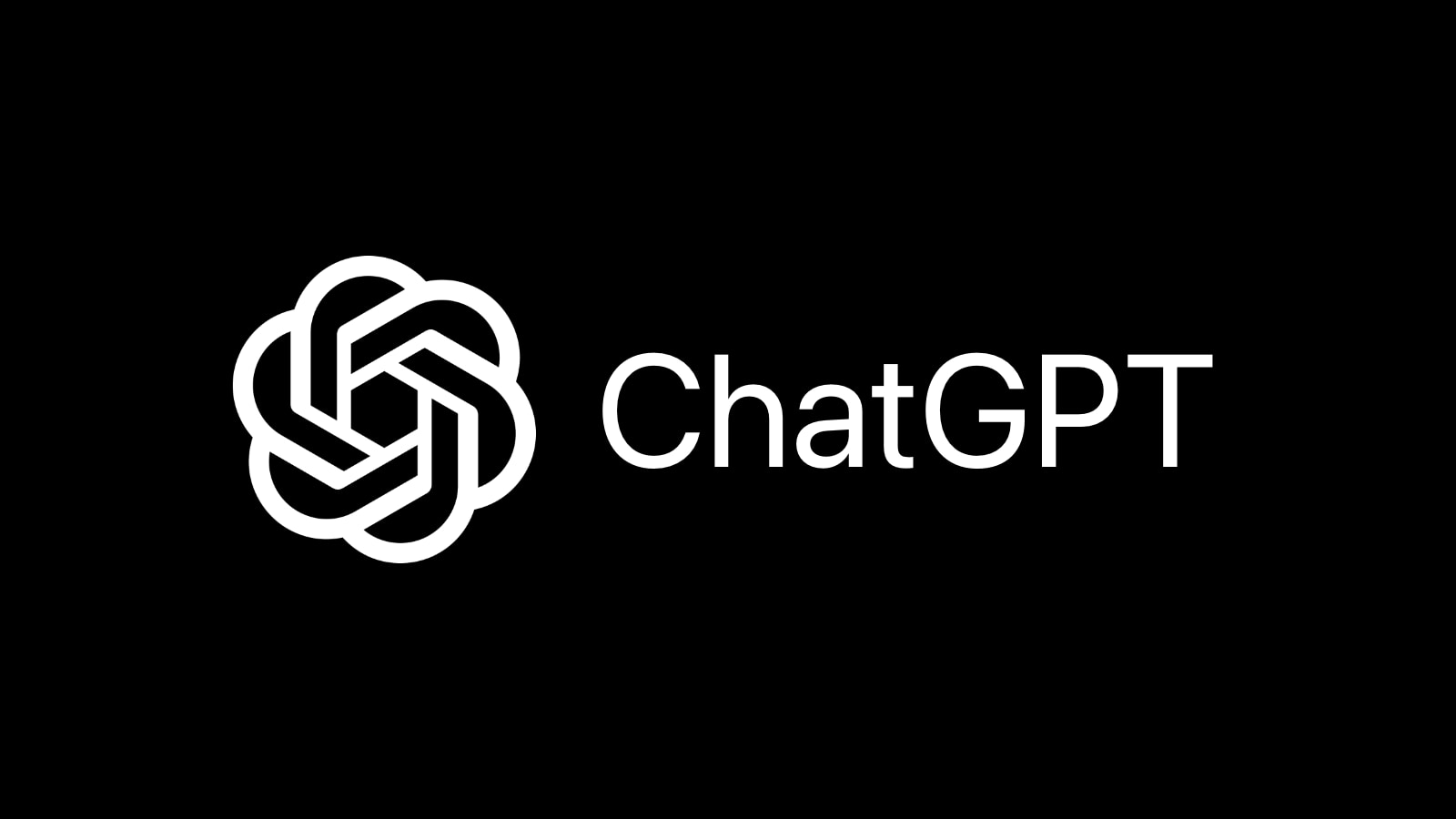
OpenAI's ChatGPT app is like having a pocket-sized genius in your smartphone. It's not just any app; it's the future of human-computer interaction. Imagine chatting with an AI that understands you, answers your questions, and even cracks a joke or two!
Whether you're seeking information, brainstorming ideas, or just need a buddy to chat with, ChatGPT has your back. It's your all-in-one problem solver, creative partner, and knowledge guru rolled into one.
ChatGPT doesn't just regurgitate facts. It understands context. It can have a conversation that flows naturally like you're chatting with a human. It reads, it listens, and it responds with uncanny intelligence.
Worried about privacy? OpenAI has your back there too. They've designed ChatGPT with privacy in mind, ensuring that your personal data stays, well, personal.
This app isn't just for casual chatter. It's a tool for professionals, students, creators, and anyone with a curious mind. Whether you're writing, learning, designing, or just looking for some fun banter, ChatGPT is your AI companion on this digital adventure.
In summary, the OpenAI ChatGPT app transcends mere convenience; it signifies a paradigm shift in human-computer interaction. This application empowers professionals, students, and enthusiasts across the world to access information, creativity, and insights with unparalleled ease. It embodies the future of AI-driven technology, where knowledge, ideas, and inspiration are readily accessible through seamless, intelligent conversations. The ChatGPT app is not merely an application; it is a testament to the boundless potential of AI in shaping the future of communication.
Follow these easy steps for ChatGPT login:
1. Go to https://openai.com/ and click on ChatGPT
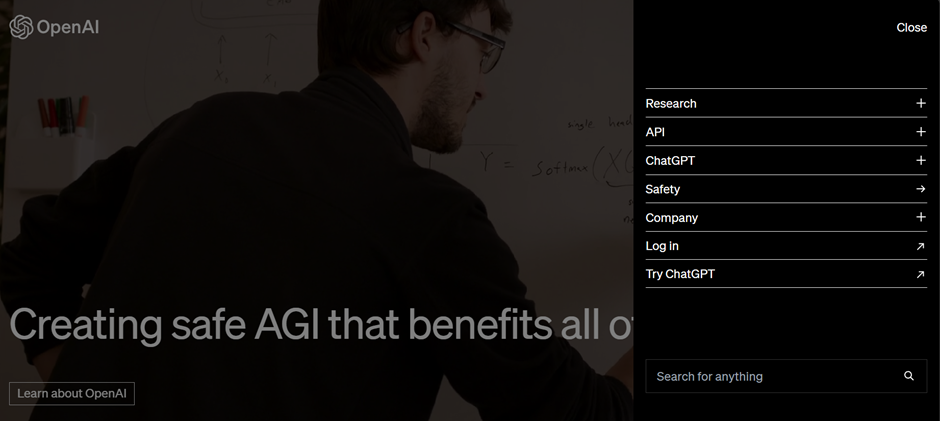
2. Click on sign up if you don’t have an account yet
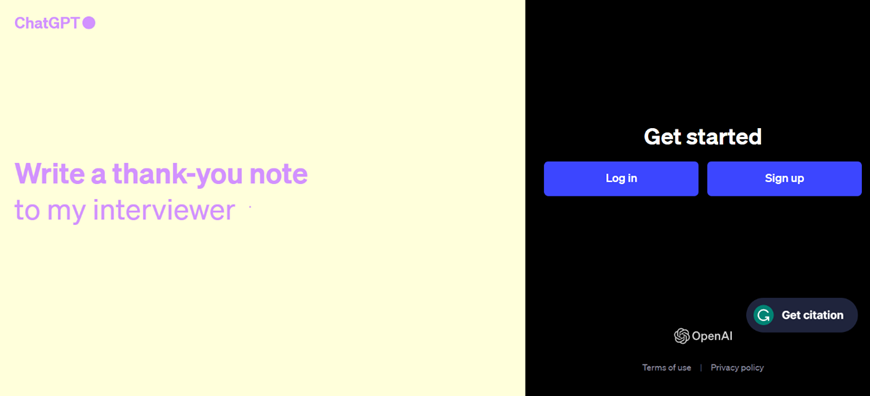
3. Click on sign up if you don’t have an account yet.
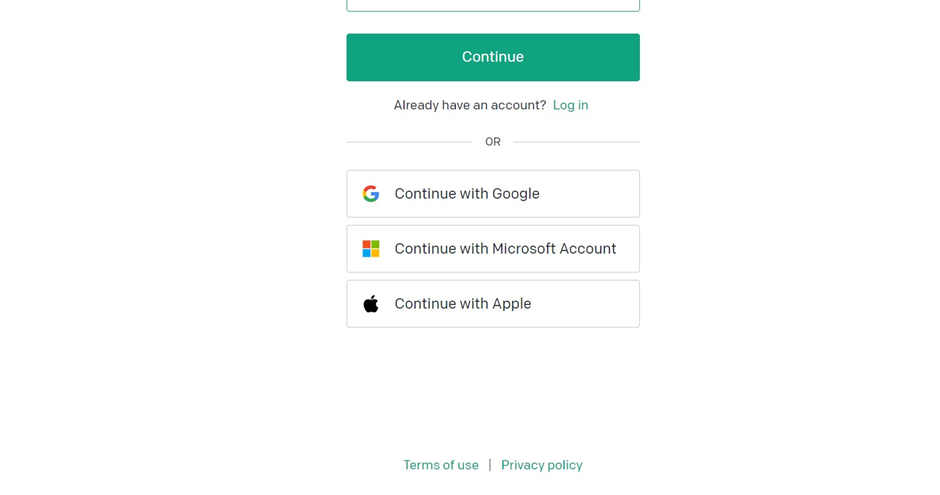
4. After logging in, you read and accept the terms and conditions
5. You are all set to use ChatGPT!
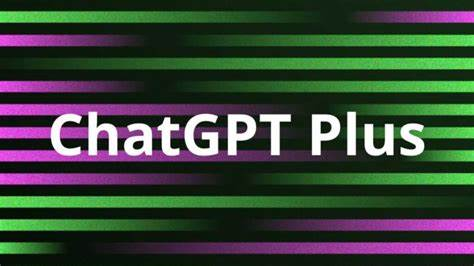
ChatGPT Plus is a premium subscription service that takes your conversational AI experience to the next level. With ChatGPT Plus, you can expect a range of exclusive benefits designed to make your interactions more efficient, engaging, and personalized.
· Priority Access: ChatGPT Plus subscribers receive priority access to the service, ensuring you have fast and reliable responses, even during peak usage times. Say goodbye to waiting in queues for your turn to chat.
· Enhanced Customization: Tailor ChatGPT to your needs with advanced customization options. Create personalized chatbots, define conversation flows, and train the AI to better understand your requirements.
· Deeper Conversations: Enjoy extended conversation lengths, allowing you to dive deeper into topics without interruptions. ChatGPT Plus offers longer chat sessions for more in-depth discussions.
· Ad-Free Experience: Say farewell to distractions. ChatGPT Plus offers an ad-free experience, so you can focus on the conversation without any interruptions.
· Premium Support: Need assistance or have questions? ChatGPT Plus subscribers receive priority customer support to ensure you have a seamless experience.
· Exclusive Updates: Be the first to access new features and improvements as ChatGPT evolves. ChatGPT Plus subscribers get early access to the latest enhancements.
ChatGPT Plus is your ticket to a more productive and enjoyable conversational AI experience. While the specific features and benefits of ChatGPT Plus may vary, a premium subscription like this would likely aim to provide users with a more convenient and enhanced chatbot experience.
Sam Altman is a prominent entrepreneur and investor in the field of technology and startups. He's known for his contributions to the tech industry and his involvement with several influential companies and organizations.
Sam Altman co-founded OpenAI along with Greg Brockman, Elon Musk, llya Sutskever, Wojciech Zaremba and john Schulman.
Altman started his entrepreneurial journey at a young age. In 2005, while still a student at Stanford University, he co-founded Loopt, a location-based social networking mobile app. Loopt was one of the early location-based services.
In March 2019, Altman joined OpenAI as its CEO. OpenAI is a research organization focused on artificial intelligence and machine learning. The organization aims to promote and develop AI technologies in an ethical and safe manner. OpenAI has been at the forefront of AI research, particularly with its GPT (Generative Pre-trained Transformer) models like GPT-3, which have made significant strides in natural language understanding and generation.
Altman is also an active investor in various tech startups. He has invested in and advised numerous companies, further contributing to the growth of the tech ecosystem. Altman has also been involved in educational initiatives, including teaching courses on startups and entrepreneurship at Stanford University.
Sam Altman is recognized for his deep involvement in the tech and startup communities, his leadership in AI research, and his efforts to address the societal implications of technological advancements.
Transformer architecture, a kind of neural network made for natural language processing, is the foundation of ChatGPT and ChatGPT Plus. It is well recognized that by processing sequential input in parallel, the transformer design can handle sequential data, such as text, faster and more effectively than traditional reconstructive neural networks.
However, there are some architectural changes between ChatGPT and ChatGPT Plus. The 12-layer transformer model used by ChatGPT has 117 million parameters, whereas the 24-layer transformer model used by ChatGPT Plus has 1.5 billion parameters. In other words, even though ChatGPT Plus has a great capacity for learning complicated language patterns, doing so also consumes more processing power. ChatGPT Plus comes with some additional features as we have seen above.
ChatGPT Plus was trained with larger and more diverse text data, such as web pages, books, and other documents. Also, since ChatGPT Plus is trained with multilingual text data, it can understand and generate text in other languages.
Although ChatGPT and ChatGPT Plus are both high-performance language models, ChatGPT Plus outperforms the other. Because ChatGPT Plus is big and has more training data, it can produce texts of greater quality, giving you access to a wider range of information.
One of the primary uses of ChatGPT is in building chatbots and virtual assistants. Organizations use ChatGPT to create interactive and responsive chatbots that can engage with customers, answer inquiries, and provide support. These chatbots enhance customer service by offering immediate assistance and freeing up human agents for more complex tasks.
ChatGPT is a valuable tool for content creators. It can generate written content, including blog posts, articles, marketing copy, and product descriptions. By providing a topic or input, users can instruct ChatGPT to create coherent and contextually relevant content, saving time and effort in content production.
ChatGPT's language capabilities extend to translation. It can translate text from one language to another, making it a handy tool for breaking down language barriers in global communication. In the field of education, ChatGPT serves as a supplementary resource. It can explain concepts, provide answers to academic questions, and assist students in their studies. It also offers language learning support by helping learners practice and understand different languages.
Developers and programmers can benefit from ChatGPT when writing code. It can generate code snippets, troubleshoot errors, and provide explanations for coding-related queries. This accelerates the software development process and aids in problem-solving. ChatGPT is a useful brainstorming partner. It can help users generate ideas for creative projects, business initiatives, or innovative solutions to problems. By providing prompts and suggestions, it stimulates creative thinking.
Many businesses integrate ChatGPT into their websites to provide 24/7 customer support. It can handle common customer inquiries, such as FAQs, product information, and troubleshooting steps, offering instant assistance to users. ChatGPT can aid in market research by analyzing and summarizing large volumes of textual data. Researchers can use it to extract insights from customer reviews, social media conversations, and survey responses, helping businesses make data-driven decisions.
In the healthcare sector, ChatGPT can assist in providing preliminary medical information to patients. It can offer general advice, explanations of medical terms, and help users find nearby healthcare providers. ChatGPT enhances digital accessibility by providing text-to-speech and speech-to-text capabilities. It aids individuals with visual or auditory impairments in interacting with digital content and services. ChatGPT is also used for entertainment purposes. It can generate jokes, stories, and riddles, providing amusement and engagement for users.
In conclusion, ChatGPT is a versatile AI model that finds applications across diverse domains. Its ability to understand and generate human-like text makes it a valuable tool for businesses, educators, content creators, and individuals seeking assistance, information, and automation in various aspects of their work and daily lives. As technology continues to advance, ChatGPT's capabilities are likely to expand, opening up new possibilities for its use across industries.
ChatGPT, developed by OpenAI, has revolutionized everyday life by offering various benefits through its natural language processing capabilities. ChatGPT offers several advantages, making it a valuable tool for various purposes. It is incredibly versatile, assisting with creative writing, answering questions, and solving problems. The way it comprehends and utilizes language creates natural and human-like conversations, making it user-friendly and accessible, even for those without advanced technical knowledge. Whether you need assistance with writing, idea generation, or learning new things, ChatGPT can provide relevant and coherent information. It's akin to having a helpful conversation partner at your fingertips. Professionals can benefit from its ability to streamline communication and collaboration. Additionally, ChatGPT aids in language learning by offering interactive practice sessions. Overall, ChatGPT is a user-friendly and adaptable tool with the potential to enhance productivity, creativity, and learning experiences across various fields. Below are a few benefits of ChatGPT in everyday life-
1. Information Retrieval: ChatGPT serves as a reliable source of information. Whether you're looking up historical facts, quick definitions, or the latest news, ChatGPT can provide instant answers, making it a valuable tool for staying informed.
2. Language Translation: For travelers or those communicating with people from different linguistic backgrounds, ChatGPT offers real-time language translation. It bridges communication gaps and fosters global connectivity by breaking down language barriers.
3. Productivity: ChatGPT streamlines productivity by assisting with tasks such as drafting emails, creating to-do lists, and setting reminders. It acts as a virtual assistant that helps you stay organized and efficient.
4. Content Creation: Content creators benefit from ChatGPT's ability to generate text. It can help authors with story ideas, bloggers with article outlines, and marketers with ad copy. This speeds up the content creation process and fosters creativity.
5. Education: ChatGPT plays a pivotal role in education. It can explain complex concepts in a simplified manner, answer academic queries, and provide study resources. It aids both students and educators in learning and teaching.
6. Coding Assistance: Developers leverage ChatGPT for coding assistance. It can suggest code snippets, debug errors, and offer programming insights, making it an invaluable companion for software development.
7. Problem-Solving: ChatGPT can assist with problem-solving by offering diverse perspectives and solutions. Whether it's technical troubleshooting or everyday dilemmas, it can provide ideas and guidance.
8. Customer Support: Many businesses integrate ChatGPT into their customer support systems, offering round-the-clock assistance. Customers can get quick responses to common queries, enhancing their experience.
9. Healthcare: In healthcare, ChatGPT helps patients understand medical information, drug interactions, and treatment options. It aids healthcare professionals in accessing up-to-date research and clinical guidelines.
10. Market Research: Researchers and businesses use ChatGPT for market research. It can analyze and summarize large volumes of textual data from customer reviews, surveys, and social media, aiding in decision-making.
11. Accessibility: ChatGPT promotes digital accessibility by providing text-to-speech and speech-to-text functionalities. It benefits individuals with disabilities, enabling them to interact with digital content and services.
12. Entertainment: Beyond utility, ChatGPT offers entertainment. It can generate jokes, riddles, and stories, adding a touch of amusement to daily life.
13. Global Connectivity: ChatGPT connects people worldwide. Through its language capabilities, it enables individuals from diverse backgrounds to communicate and share ideas, fostering global understanding.
14. Learning: ChatGPT encourages continuous learning. It can recommend books, courses, and resources based on user interests, helping individuals acquire new knowledge and skills.
15. Creativity: ChatGPT sparks creativity by assisting with brainstorming ideas, providing writing prompts, and generating novel concepts, making it a valuable resource for artists and innovators.
ChatGPT has seamlessly integrated into our daily lives. Its versatility and adaptability continue to shape the way we work, learn, and interact, and as AI technology advances, ChatGPT's contributions to our daily routines are poised to expand even further.
ChatGPT, while versatile, has notable limitations. One concern is its susceptibility to generating inaccurate or biased information, reflecting learned patterns from diverse online sources. This can perpetuate societal biases. Additionally, the model may produce nonsensical or contextually inappropriate responses, revealing limitations in true comprehension. Maintaining coherent dialogue over extended interactions proves challenging, with inconsistent responses to similar queries. Sensitivity to slight input variations can lead to disparate outputs. The model may also exhibit verbosity and overuse certain phrases. Furthermore, ChatGPT may not consistently ask clarifying questions for ambiguous queries, often making assumptions that result in inaccurate or unintended outputs. Although these limitations are inherent to the current technology, ongoing advancements aim to address and refine the capabilities of conversational AI like ChatGPT. Let's explore its other limitations.
· ChatGPT's responses are generated based on patterns in data, but it doesn't possess true understanding or common sense reasoning. It can produce plausible-sounding answers that are factually incorrect or nonsensical in context.
· The model is highly sensitive to the phrasing of input queries. A slight rephrasing of a question can yield different responses, indicating a lack of robustness in understanding user intent.
· ChatGPT can produce inappropriate or biased responses. It may inadvertently generate offensive, biased, or politically incorrect content, which poses ethical concerns and challenges for content moderation.
· The model has a tendency to generate excessively long and verbose responses, which can be impractical and overwhelming for users seeking concise answers.
· ChatGPT tends to guess user intent when faced with ambiguous queries instead of seeking clarification. This can lead to inaccurate or irrelevant responses.
· The model often provides answers with a high level of confidence, even when it's uncertain. Users may interpret these responses as more reliable than they actually are.
· ChatGPT has a limited context window, meaning it may not remember or reference information from earlier parts of a conversation, leading to disjointed dialogues.
· There are security concerns related to malicious use of ChatGPT, such as generating phishing content, misinformation, or impersonating individuals or organizations.
In conclusion, ChatGPT represents a remarkable leap forward in natural language processing, offering a multitude of benefits in everyday life, from information retrieval to productivity and education. However, it is essential to recognize its limitations, including biases, inaccuracies, and potential misuse. As AI technology continues to evolve, addressing these challenges and promoting ethical usage will be pivotal. ChatGPT's impact is undeniable, but responsible integration and ongoing research are crucial for harnessing its full potential while ensuring safe and meaningful interactions in an increasingly AI-driven world.